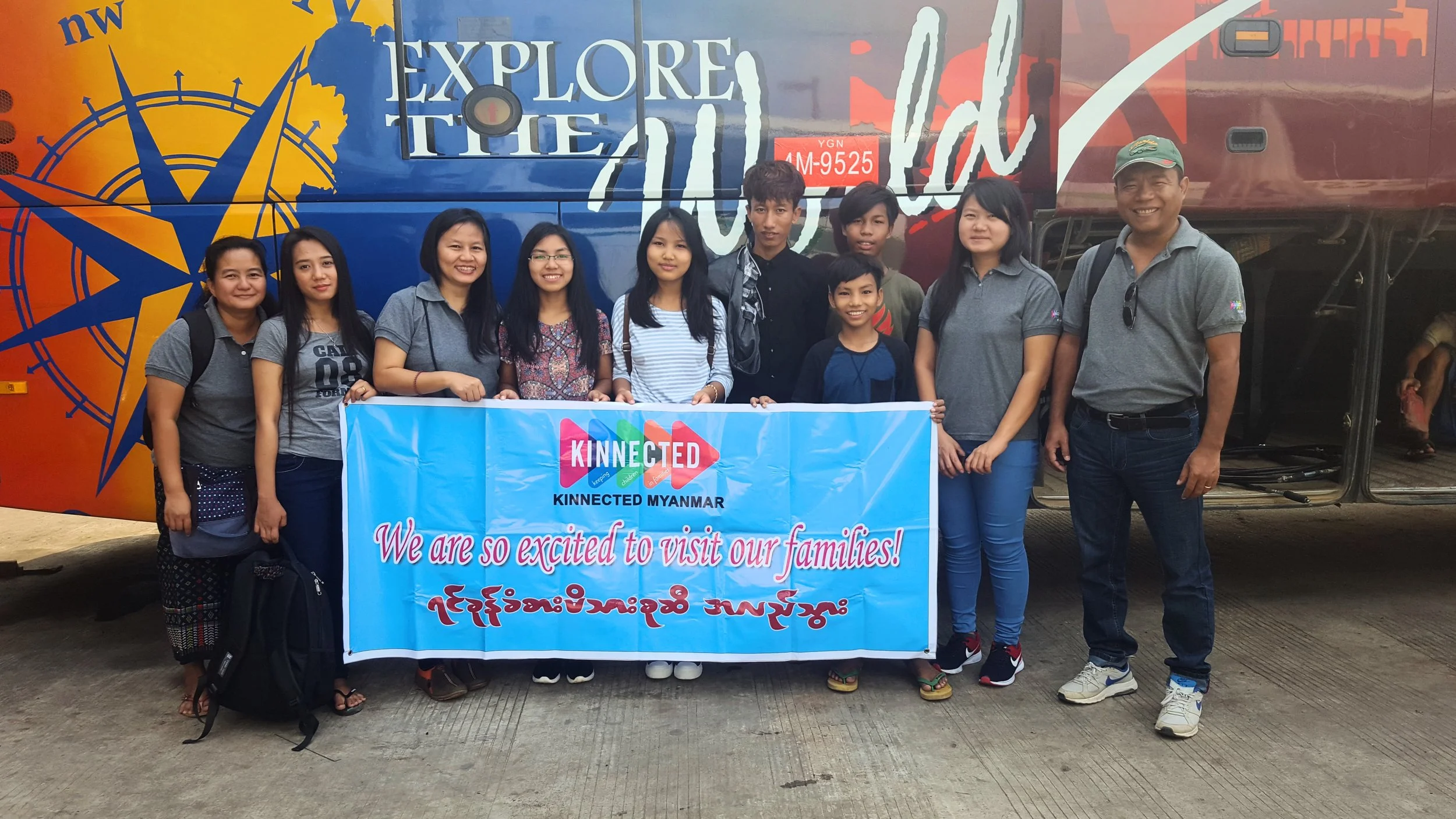This summer, our social workers will travel throughout Myanmar to visit remote communities.
Summer Break in Myanmar
As hot season fast approaches, schools in Myanmar are shutting their doors for the annual summer holiday. This break gives our social workers the unique opportunity to take the children they work with, out of the orphanages and travel with them to their rural villages to visit their families. The purpose of these visits is threefold:
It allows the children to reconnect with their relatives;
It gives the opportunity for social workers to observe the children interacting with their families;
It gives social workers the chance to run awareness seminars.
Travelling to visit families
Last year our social workers took forty-one children back to visit their families. Of these, sixteen children ended up remaining with their families, either because their parents came to realise through conversations with the social workers and awareness seminars the harm that institutional care was causing their children, or through the reintegration process. It was encouraging to see so many families take responsibility for their children and we are excited to see how it progresses this year, as thirty-four children are going home for visits this summer.
These visits are the only opportunity social workers have to spend quality time with the children in an environment that is safe and free. It is here that we do our best work; making families aware of the realities of orphanage life, about which they can get confirmation from the children without the children thinking that they risk punishment from the orphanage directors for speaking freely. As we progress through the reintegration process, the information that is learned through observing and assessing the interaction between family and children will be invaluable in helping place children permanently back within families.
Monitoring children is not the only purpose of these visits. Seminars and workshops covering topics like child protection, child development, family strengthening and parenting skills will be provided in key village centres. This information can empower families to look after their children and to keep them out of institutional care.
Our social workers meeting last year with families in their homes
The Challenge of Taking Children away from Orphanages
These visits come with a host of challenges, all which impact the possible outcomes for children. One of the biggest challenges social workers face is the refusal of many orphanage directors to allow the children to go home. Orphanage directors do not like children leaving the orphanage, as they are aware that many of these children will end up staying with their families. When children leave an orphanage, the director’s source of income is threatened.
Summer is a time when foreign visitors to come into orphanages and run activities such as Bible camps, evangelism or English classes. These activities bring foreign donations, and so directors are usually keen to see them take place. Without children, donors will not come and visit. Christian donors and volunteers often think that by running activities like these they are raising up future missionaries who will go back to their native villages to evangelise. Not only is this model not Biblical, it uses and exploits children in a way that is in direct opposition to how the Bible teaches us to care for the vulnerable and the needy. (Click here to explore ACCI Biblical Basis for Missions and Development Manual.)
Another hurdle that our social workers have to face is the length of time that many of these children have been separated from their families. Depending on the length of separation, many children are no longer able to communicate with family, having lost the use of their native dialect. An institutionalised lifestyle, where their daily routine from waking up to going to bed is very regimented, is very different to the freedoms they enjoy back in the village. This is another reason why many orphanage directors do not allow them to return home in the summer because when they return, it takes many months to re-institutionalise them again!
The main difficulty for the children however, is the issue of attachment. Depending on the child’s age and the length of separation, it is not always easy to re-connect with family members. When the children are first sent away, the coping mechanisms for their feelings of fear, isolation, rejection or abandonment kick in to allow them to deal with the huge changes to their lives. There is usually no outlet for the expression of their feelings so these emotions are bottled up inside them. Visits to the children’s homes by foreigners engaging in short-term mission trips often exacerbate these feelings, and cause deeper emotional scarring. These attachment disorders make it difficult for children to attach with their families during a short visit.
Despite these hurdles, our social workers know that the only way that we can change the status quo is by engaging the families when the children are with them. It is these communities that we need to empower.
Meeting Children’s Needs in Communities
By sharing knowledge of these issues with local families, and partnering with other organisations in Myanmar, we can minister to families in the communities where they live. By strengthening families and empowering communities in these remote areas, we can ensure that families will be able to provide for their children. This also helps to prevent future separation. The model given by God in which to bring up a child, is in a family. If more ministries focus their efforts on understanding the issues which cause family separation and seek to direct resources to address them in the areas where the families live, and not in the towns and cities where it is easier for them to access, we might be able to keep families together. Institutions do not meet the developmental and emotional needs of children. These needs can only be met in a loving family supported by a community.



